Did you know? As we are moving toward a society with unprecedented levels of commitment to social justice, environmental sustainability, and climate change mitigation efforts, 83 percent of consumers now strongly believe that businesses — which have decidedly more power as well as a much larger impact than the average individual — should lead the way forward.
More and more consumers “put their money where their mouth is” when they say they want companies to commit to corporate social responsibility fit for the 21st century.
That means they will likely assess a company’s dedication to ESG values — environmental, social, and governance issues — at least informally.
Table of Contents
- Best Socially Responsible Banks
- 1. Aspiration
- 2. The Amalgamated Bank
- 3. Beneficial State Bank
- 4. Citizens Bank
- 5. Ally Bank
- 6. Spring Bank
- 7. Union Bank
- 8. City First Bank of DC
- 9. First Green Bank
- 10. The Missoula Federal Credit Union
- 11. Southern Bancorp
- 12. Sunrise Banks
- 13. Clearwater Credit Union
- 14. VCC Bank
- How to Choose Socially Responsible or Sustainable Banks
- What is a socially responsible bank?
- Why choose a socially responsible bank?
- How Can You Determine Which Banks Are Committed to Ethical Banking?
- B Corp Certification
- Global Alliance for Banking on Values (GABV)
- Community Development Financial Institution (CDFI)
- ESG Banks vs Ethical Banking: What’s the Difference?
- What Are the Best Environmentally and Socially Responsible Banks In the United States?
- FAQs
- Which banks are most socially responsible?
- What is Ethical Banking?
- What is an ESG bank?
- What bank is the most eco-friendly?
Best Socially Responsible Banks
Let’s get into our top socially responsible banks and credit unions.
1. Aspiration
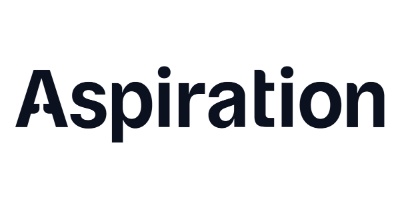
This neobank, which is online-only, places a strong focus on environmental sustainability. Clients know that their funds will never be used to fund or invest in fossil fuel industries, and every transaction has a reforestation initiative.
This makes Aspiration one of the most environmentally friendly banks. Aspiration is a certified B Corp, given to for-profit companies that meet the highest social and environmental performance, accountability, and transparency standards.
Aspiration offers both savings and checking accounts for personal banking as well as an excellent online and mobile banking interface for its users. Grab your bonus by opening a bank account now.
Like what you are hearing? Read our full Aspiration neo-bank review.
See Related: Ethical Dividend Stocks to Invest in Today
2. The Amalgamated Bank

Amalgamated Bank is known as “America’s socially responsible bank.” This bank is based in New York and is certified as a B Corp and part of the Global Alliance for Banking on Values. They have one of our favorite green credit cards on the market and are a known online and mobile banking leader.
Amalgamated Bank is a socially responsible financial institution serving its customers since 1923. The bank was founded by leaders in labor and progressive politics, who believed that the U.S. government was responsible for protecting workers’ rights and providing social services for all Americans.
Amalgamated Bank continues to carry out this mission through its commitment to social justice and environmental sustainability. It is a member of the Federal Deposit Insurance Corporation, which ensures that your money is safe if something goes wrong with the bank; it also participates in the Federal Reserve System, providing cash management services for other banks across the country.
In addition, this sustainable bank belongs to the New York Clearing House Association (NYCH), an association of banks within NYCH that facilitates payments between member banks worldwide.
The Amalgamated Bank works with many local and national organizations on a variety of social justice causes. The bank is currently focusing on increasing the number of women and people of color in leadership roles, as well as fighting for a $15/hour minimum wage.
See Related: Best Sustainable Business Examples to Follow
3. Beneficial State Bank
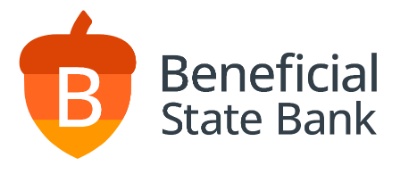
With California, Oregon, and Washington locations, Beneficial State Bank is certified by B Corp, the GABV, and as a Community Development Financial Institution.
It is deeply committed to planet-first ESG values, such as relying on renewable energy and avoiding fossil fuel companies.
Beneficial State Bank focuses on affordable housing, small business lending, and community development. This bank was created as part of a mission to help reduce poverty and increase economic opportunities in low-income communities.
Beneficial State Bank offers checking and savings accounts, as well as loans and lines of credit. You can currently get a $250 cash bonus when you open and fund a new account with at least $1,000.
See Related: Best Banks for Low Income Earners
4. Citizens Bank
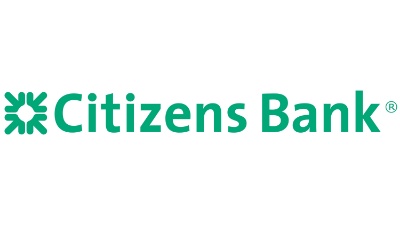
One of the oldest banks in America, Citizens Bank has been working towards social responsibility since it was founded in 1828. The bank has a long history of supporting social causes, including the abolition of slavery, the women’s suffrage movement, and the civil rights movement.
In recent years, Citizens Bank has been focused on increasing economic opportunities in underserved communities. The bank has committed to lending $10 billion to small businesses in low- and moderate-income neighborhoods by 2020.
See Related: What Are Smart Cities? Different Examples
5. Ally Bank
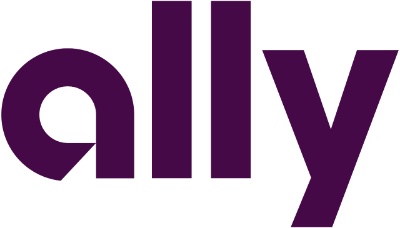
Founded in 2004, Ally Bank is a wholly owned subsidiary of Ally Financial (NYSE: ALLY). The mission of Ally Bank is to provide customers with an easy and convenient way to manage their money while helping them reach their financial goals.
Ally Bank offers a wide range of checking and savings accounts, certificates of deposit (CDs), money market accounts, home loans, and auto financing. With no minimum balance requirements or monthly service charges for most checking accounts, no minimum deposit to open a CD, free online access, and free telephone banking 24/7 with live customer service available Monday through Friday.
They offer mobile banking via the smartphone app or text message.
See Related: Best ESG Rating Agencies – Who Gets to Grade?
6. Spring Bank
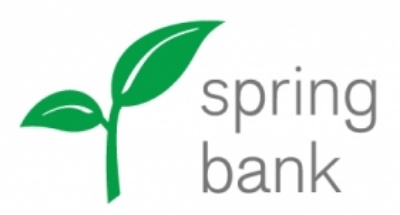
Spring Bank is a member of the Sustainable Business Network, a non-profit organization that promotes socially responsible businesses. Spring Bank has a variety of excellent policies found within socially responsible banking, such as:
- 100% renewable energy use
- carbon emissions reduction initiatives
- local community investment environmental, social, and governance practices sustainable business management
Spring Bank offers personal and business banking products, including checking and savings accounts, loans, and lines of credit. This green bank is an excellent option for those looking to gain additional experience to ESG and environmental sustainability.
See Related: Best Socially Responsible Financial Advisors
7. Union Bank
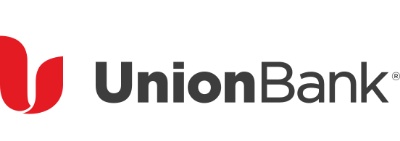
With locations in California, Oregon, and Washington, Union Bank is a subsidiary of the Japanese bank Mitsubishi UFJ Financial Group. The bank is a member of the Global Alliance for Banking on Values and is a certified B Corp.
Union Bank focuses on small business lending, affordable housing, and economic development. The bank has also committed to increasing its lending to women-owned businesses and businesses in low- and moderate-income communities.
This bank offers a full range of banking products, including checking and savings accounts, credit cards, loans, and lines of credit.
See Related: Best ESG Target Date Funds
8. City First Bank of DC
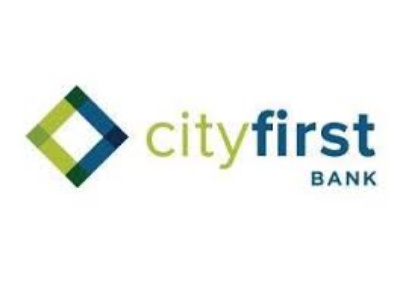
City First Bank of DC is dedicated to small businesses and sustainable economic development, making it a great option for personal and business banking. CFB offers a wide variety of services for business owners and entrepreneurs, including:
- Lending products (term loans, lines of credit, etc.)
- Business banking products (checking accounts, savings accounts, merchant services, etc.)
- Financial counseling and coaching
City First Bank of DC also provides personal banking products and services, such as personal checking and savings accounts, credit cards, and home loans. In addition, they offer online banking to help you manage your bank accounts on the go.
See Related: Best Green Companies to Invest in 2023
9. First Green Bank
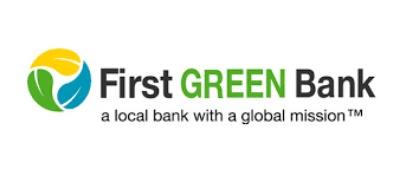
First Green Bank, based in Florida, carries its mission within its name. This local bank is a certified B Corp, and GABV certified. With locations in Vermont and New Hampshire, Mascoma Savings Bank is B Corps certified and committed to volunteering.
First Green Bank’s goal is to become the most environmentally responsible bank in the United States. The company’s website offers “a wide range of products and services to help people protect their finances, their homes, and our environment.”
The organization is based in California and was founded by former Union Bank employees who split off to start First Green Bank. The organization calls itself “California’s only community-oriented credit union with an environmental focus,” its mission statement declares that it will be “owned by its members—those who live or work within our service area.”
See Related: TransDigm Group Incorporated ESG Profile (TDG): Is It Sustainable?
10. The Missoula Federal Credit Union
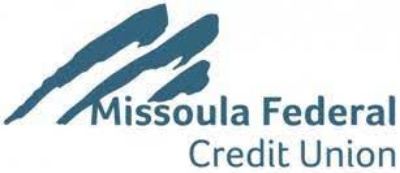
The Missoula Federal Credit Union is a member-owned financial institution that has been serving the needs of its members since 1938. The credit union focuses on serving its members and has a strong commitment to the Missoula community.
Missoula Federal Credit Union also has a sustainability focus, emphasizing environmental responsibility and employee health and wellness. In addition to these two areas, Missoula Federal Credit Union offers many socially responsible products: auto loans, home loans, mortgages (including FHA loans), small business loans, and more.
They even have a program called MyCU Student Loans, where you can get low rates for student loans if you maintain your membership with them!
11. Southern Bancorp
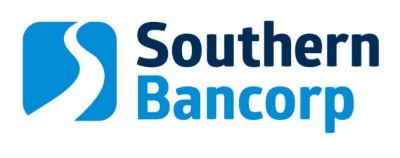
Southern Bancorp is a community bank that has been serving the South for over 100 years. It’s a member of the Federal Deposit Insurance Corporation (FDIC), and it participates in the Community Reinvestment Act (CRA).
Southern Bancorp provides banking services to individuals and businesses, including personal loans and home equity lines of credit. The company was founded in 1914 as Citizens Bank & Trust Company but changed its name to Southern Bank & Trust Company after merging with other smaller financial institutions.
12. Sunrise Banks

Sunrise Banks, based in Minnesota, is also among the best environmentally friendly banks, part of GABV, certified B Corp, and CDFI certified. The bank’s focus is on solar and green infrastructure financing.
Sunrise Banks offers personal checking and savings accounts, as well as business banking products and services. You can currently get a $200 cash bonus when you open and fund a new account with at least $1,000.
Beyond personal banking, they also offer business banking options for checking and savings accounts, making them a great option for those looking to move away from the big banks of the US.
Don’t see a bank near you on the list? Don’t worry — these are far from the only ethical banking options in the US, or throughout the world for that matter.
As increasing numbers of banks voluntarily uphold the highest environmental sustainability standards and make doing good in the world part of their core business mission, checking if your bank embraces ESG values actively will become easier and easier.
13. Clearwater Credit Union

If you’re looking for a socially responsible bank, Clearwater Credit Union is your place. This financial cooperative is a member-owned financial institution and operates as a not-for-profit organization. It’s also one of the best socially responsible banks in the country.
Clearwater Credit Union has strong ties to its local community and offers high-quality products and services, including checking accounts, personal loans, and mortgages.
The company offers competitive rates on deposit accounts such as CDs (certificates of deposit) or money market accounts, allowing members to earn more interest than traditional bank deposits without committing their funds for an extended period.
In addition to its standard offerings, CUCU provides personalized advice on how members can build their wealth through home equity lines of credit (HELOCs) or other financial tools designed specifically for homeowners who want additional capital at a little cost over time while still having access to cash when necessary.
See Related: Predictive Analytics in Banking
14. VCC Bank
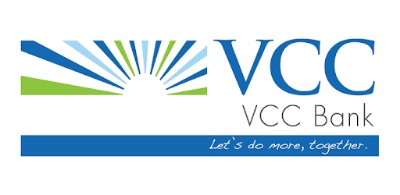
VCC Bank is a member of the U.S. Green Building Council, which means they’re committed to environmentally responsible practices. VCC Bank also offers loans for affordable housing and has charitable outreach programs for impoverished communities throughout the world.
VCC Bank is a member of the U.S. Green Building Council, which means they’re committed to environmentally responsible practices. VCC Bank also offers loans for affordable housing and has charitable outreach programs for impoverished communities worldwide.
How to Choose Socially Responsible or Sustainable Banks
In practice, that may mean shunning a clothing retailer’s recently reported involvement with unethical labor practices within the supply chain, such as child or prisoner labor or a lack of basic health and safety standards in factories.
It may mean actively buying from fast-food chains or grocery stores that have made important strides in phasing out environmentally hazardous disposable cups, packaging, and bags instead of choosing sustainable alternatives.
It may mean choosing service providers that embrace renewable energy options. Consumer activism may even go further when individuals don’t just assess a company’s ESG commitments more formally when they make their own choices but also sign petitions, raise awareness about boycotts on social media, and encourage people in their social circles to be socially and environmentally conscious in their spending choices.
No matter which companies may have earned your trust and support, some people forget about a crucial step. If you are anything like the average modern consumer, you likely “store” every cent you earn at a bank — and rely on that same bank whenever you spend any money, anywhere.
Banks have become so ingrained in our daily lives that we often neglect to remember they’re there. Putting your money where your mouth is — or rather, in this case, where your values lie — has an enormous impact at the level of banks, however.
To be an environmentally and socially aware consumer or an ESG activist hoping to impact the policies of large corporations at the level of your individual spending choices, you cannot fail to consider where you bank.
- So, what are the best socially responsible banks in the 21st century?
- What about the best environmentally friendly banks?
- As a consumer or small business owner, how do you even begin to assess what banks have embraced ESG values and are practicing excellent corporate citizenship?
The answer may be complicated, but learning about sustainable banking products is worth it to maximize your impact.
See Related: Best Community Investments to Leave a Positive Impact
A socially responsible bank is a financial institution considering the social and environmental impact of its investments and lending decisions. Socially responsible banks are also known as “ethical banks”, “green banks”, or “sustainability-focused banks”.
The term “socially responsible bank” is relatively new, and it’s still unclear what qualifies as a socially responsible bank.
For some people, the term encompasses any bank that doesn’t support fossil fuel projects or companies with poor environmental records. For others, ethical banking focuses on lending to small businesses and entrepreneurs in underserved communities.
Ultimately, the definition of a socially responsible is up to each individual. Some might consider any bank that doesn’t invest in fossil fuels socially responsible. In contrast, others might only consider banks with a specific social mission socially responsible.
You might want to choose a socially responsible bank for a few reasons. First and foremost, choosing a socially responsible bank is a way to align your values with your financial decisions.
If you care about social and environmental issues, choosing a socially responsible bank is a way to ensure that your money is being used in a way that is consistent with your values.
Another reason to choose a socially responsible bank is that it can be a way to support the growth of a sustainable economy. Banks that focus on lending to small businesses and entrepreneurs in underserved communities are helping to build a more inclusive and sustainable economy.
Finally, choosing a socially responsible bank can be a way to support the transition to a low-carbon economy. Banks divesting from fossil fuels and investing in renewable energy are critical in the fight against climate change.
How Can You Determine Which Banks Are Committed to Ethical Banking?
Environmentally and socially responsible banks would be those dedicated not merely to making a profit (although that will remain an important factor) but also to creating positive change in the world.
How do you know which banks are socially responsible, though? Let’s be honest for a moment — no company will be harmed by advertising that embraces aspects of environmental sustainability or social justice in the current social climate, and many will actively benefit.
As such, it’s not difficult to come across companies, including banks, that declare a token commitment to ESG values in a rather vocal way.
“One tree planted per email” would be one example if you are hoping to assess how committed your current bank is to ESG principles, with a focus on environmental sustainability and climate change mitigation.
However, there’s a more systematic way to go about that than trusting in a bank’s highly advertised steps in the right direction, which could sometimes turn out to be little more than a publicity stunt.
The same holds if you consider switching to a new bank because you know that money talks, and you only want to work with environmentally and socially conscious banks.
Although consumers can check how committed a bank is to environmental sustainability and social equity in several ways, the reality remains that most of us lead busy and complex lives where we have little time to do the kind of research that would earn you a handsome chunk of change if you were doing it professionally.
Instead, busy consumers who want to be environmentally conscious in their banking choices can rely on some of the already established standards in this area.
Let’s take a closer look at easier ways to determine what the best ethical banks are.
See Related: History of Impact Investing
B Corp Certification
The B Corp (or B Corporation) certification, established by the international non-profit organization B Lab, is a reputable standard. Only companies with proven dedication to environmental, social, and governance principles of corporate social responsibility can receive this certification.
Once they get it, they must become recertified every three years to ensure they still uphold the highest standards. Those companies that are B Corp certified will be proven to have made very significant policy and practical steps toward:
- social issues in the wider community (reduced poverty and increased equity, among others),
- social progression in the workforce (dignified and ethical working conditions for diverse workers), and
- environmental issues (waste management, renewable energy, cleaner water, and pollution mitigation).
As the B Corp certification, by definition means that a corporation has made itself accountable to outside organizations and is eager to join the growing community of socially and environmentally responsible corporations, people looking for socially responsible banks can look for B Corp-certified banks. Over 3,000 companies have become B Corp certified to date globally, some of which are banks.
See Related: Awesome Impact Investing Examples to Know
Global Alliance for Banking on Values (GABV)
The Global Alliance for Banking on Values is an ESG standard specific to the banking world — making it a great place to look if you are hunting for environmentally and socially responsible banks that have demonstrated that their mission stretches far beyond profits alone.
Headquartered in Amsterdam, the GABV is a network of banks, banking coops, and other financial institutions that shows that self-regulation is possible, to an extent at least, within industries.
The Global Alliance for Banking on Values has a mission of changing banking for the better by setting numerous sustainable banking examples to change industry standards over time.
Banks that meet the rigorous ESG standards that the GABV sets know that banking plays a crucial role in creating a sustainable economy that benefits all segments of society and is environmentally sustainable.
Its members recognize that values-based banking does not need to mean sacrificing financial returns — indeed, quite the opposite is quickly becoming true.
As membership within the GABV is both voluntary and open only to those banks who have a proven commitment to environmental sustainability and social equity, in practice as well as in theory, there is no question that consumers choose banks that are part of the GABV network are choosing environmentally and socially responsible banks.
See Related: Best Neobanks in the World
Community Development Financial Institution (CDFI)
The Community Development Financial Institution, CDFI for short, is an initiative the US Department of the Treasury started.
This set of US-only standards focuses on revitalizing and growing the most economically vulnerable communities. This is achieved through lending for affordable homes as well as socially responsible investment to help distressed communities.
Although socially responsible banks have applied for and received CDFI certification and are committed to the “S” in ESG values, the Community Development Financial Institutions Fund initiative’s targeted nature means that participating banking institutions do not necessarily demonstrate a commitment to environmental sustainability or climate change mitigation.
However, looking for a bank with CDFI certification does help consumers search for socially responsible banks.
See Related: ESG Investing Trends
ESG Banks vs Ethical Banking: What’s the Difference?
Consumers and small business owners looking for sustainable banking examples to decide where to place their trust can certainly scour banks’ press releases, social media profiles, published ESG integration frameworks, and annual ESG disclosures.
They can also use the internet to learn more about the kind of coverage any hopefully ethical banks they are considering banking with have received in the media.
In this case, it is crucial to look for reports on serious lapses in corporate social responsibility and ESG principles, as well as for positive coverage.
When a bank has been certified by a third-party body, however, that means that the financial institution has voluntarily taken steps to hold itself accountable to the wider community and to open itself up for scrutiny.
Whether the motivation behind taking these lengthy and difficult steps was financial or spurred by a genuine desire to make marked changes in worldwide corporate culture by working toward environmental sustainability and social equity matters little in practice.
These banks have walked the walk and can certainly be among the best ethical, socially responsible, and environmentally friendly.
Each of the ESG standards that banks could apply to be certified examined briefly above is different. These standards each have a different focus and unique requirements.
If you come across a bank that has met the requirements to become part of the networks of several of these standards, you know, as a consumer or small business owner, that that bank has gone above and beyond.
These banks aren’t just in it for the cheap publicity — but are genuinely committed to changing the nature of banking to ensure financial institutions become a force for good in the world.
See Related: What is Quadruple Bottom Line?
What Are the Best Environmentally and Socially Responsible Banks In the United States?
Ethical banks are emerging worldwide, and not all banks and other financial institutions committed to environmental sustainability, climate change mitigation, and economic and social equity in their workforce and the communities they serve will be certified by third-party bodies.
Some are going to be incredibly small micro-banking initiatives that operate only within their respective communities.
In the United States, however, consumers looking for socially responsible banks focusing on environmental corporate responsibility can look at those banks certified by multiple outside bodies.
FAQs
Regarding socially responsible banks and credit unions, the US’s most ethical and green banks include Aspiration, Amalgamated Bank, and Capital One.
What is Ethical Banking?
Ethical banking is the practice of making decisions about where to invest and do business to benefit society. It considers social, environmental, and economic factors when assessing a financial institution’s impact on the world.
What is an ESG bank?
ESG banks use the ESG framework to analyze, monitor, and improve their environmental, social, and governance performance. The ESG framework is a combination of strategies that provides investors with information about sustainable financial institutions.
ESG banks are more likely to be sustainable because they are willing to invest in projects that positively impact society and the environment while avoiding the fossil fuel industry. Many consumers feel more comfortable banking with an ESG bank because they know their tax dollars will not go toward funding environmentally damaging or socially irresponsible projects.
What bank is the most eco-friendly?
A bank that is considered the most eco-friendly is Triodos Bank. It is a sustainable bank that invests in environmentally and socially responsible projects and businesses. Triodos Bank is committed to transparency and only finances organizations that meet their strict sustainability criteria.
Related Resources
- Best Impact Investing Jobs
- How to Start Investing in Women
- Things to Know About Climate Refugees
- Unethical Banks to Know
Kyle Kroeger, esteemed Purdue University alum and accomplished finance professional, brings a decade of invaluable experience from diverse finance roles in both small and large firms. An astute investor himself, Kyle adeptly navigates the spheres of corporate and client-side finance, always guiding with a principal investor’s sharp acumen.
Hailing from a lineage of industrious Midwestern entrepreneurs and creatives, his business instincts are deeply ingrained. This background fuels his entrepreneurial spirit and underpins his commitment to responsible investment. As the Founder and Owner of The Impact Investor, Kyle fervently advocates for increased awareness of ethically invested funds, empowering individuals to make judicious investment decisions.
Striving to marry financial prudence with positive societal impact, Kyle imparts practical strategies for saving and investing, underlined by a robust ethos of conscientious capitalism. His ambition transcends personal gain, aiming instead to spark transformative global change through the power of responsible investment.
When not immersed in the world of finance, he’s continually captivated by the cultural richness of new cities, relishing the opportunity to learn from diverse societies. This passion for travel is eloquently documented on his site, ViaTravelers.com, where you can delve into his unique experiences via his author profile.
